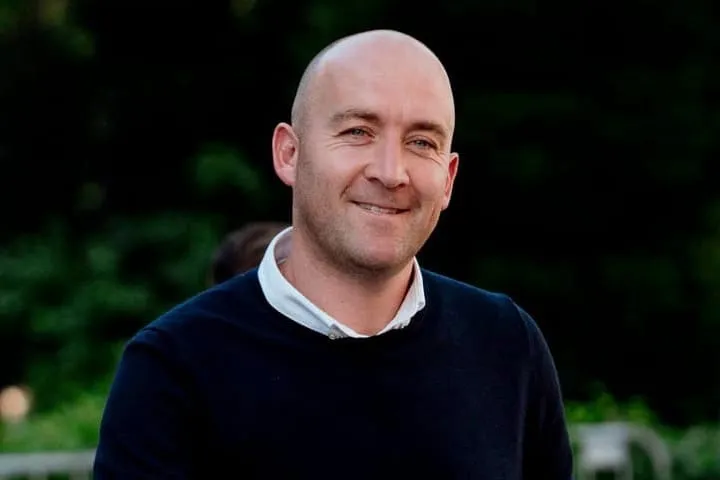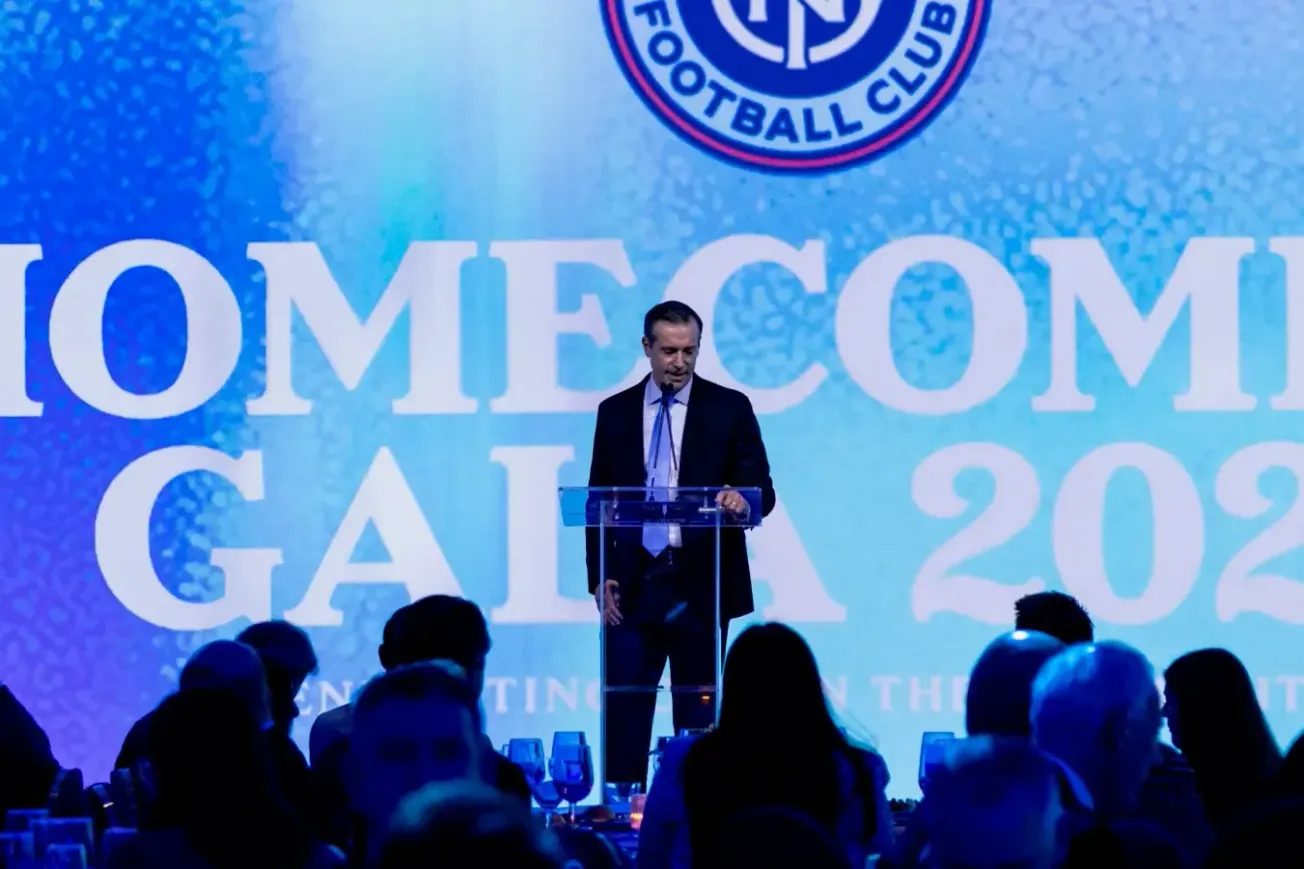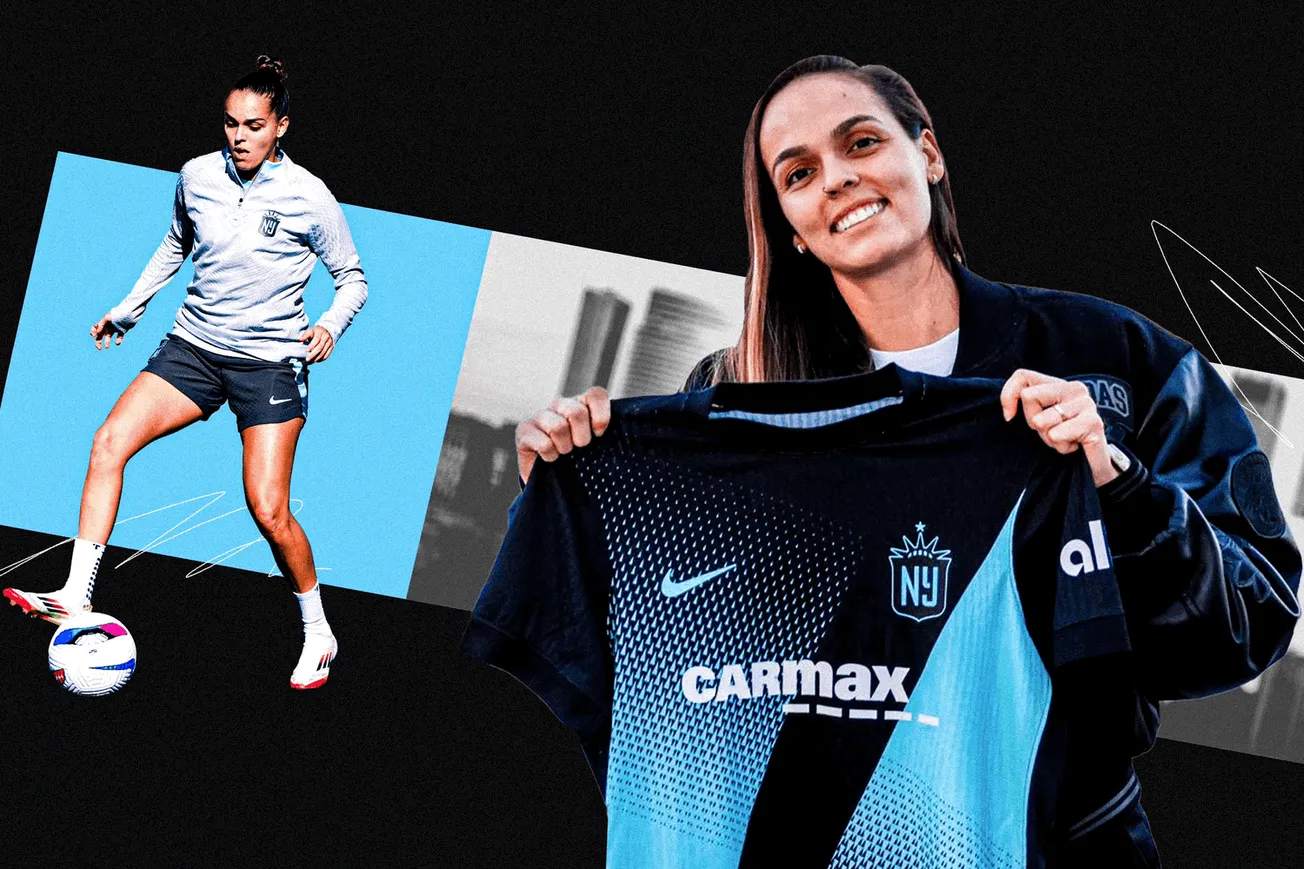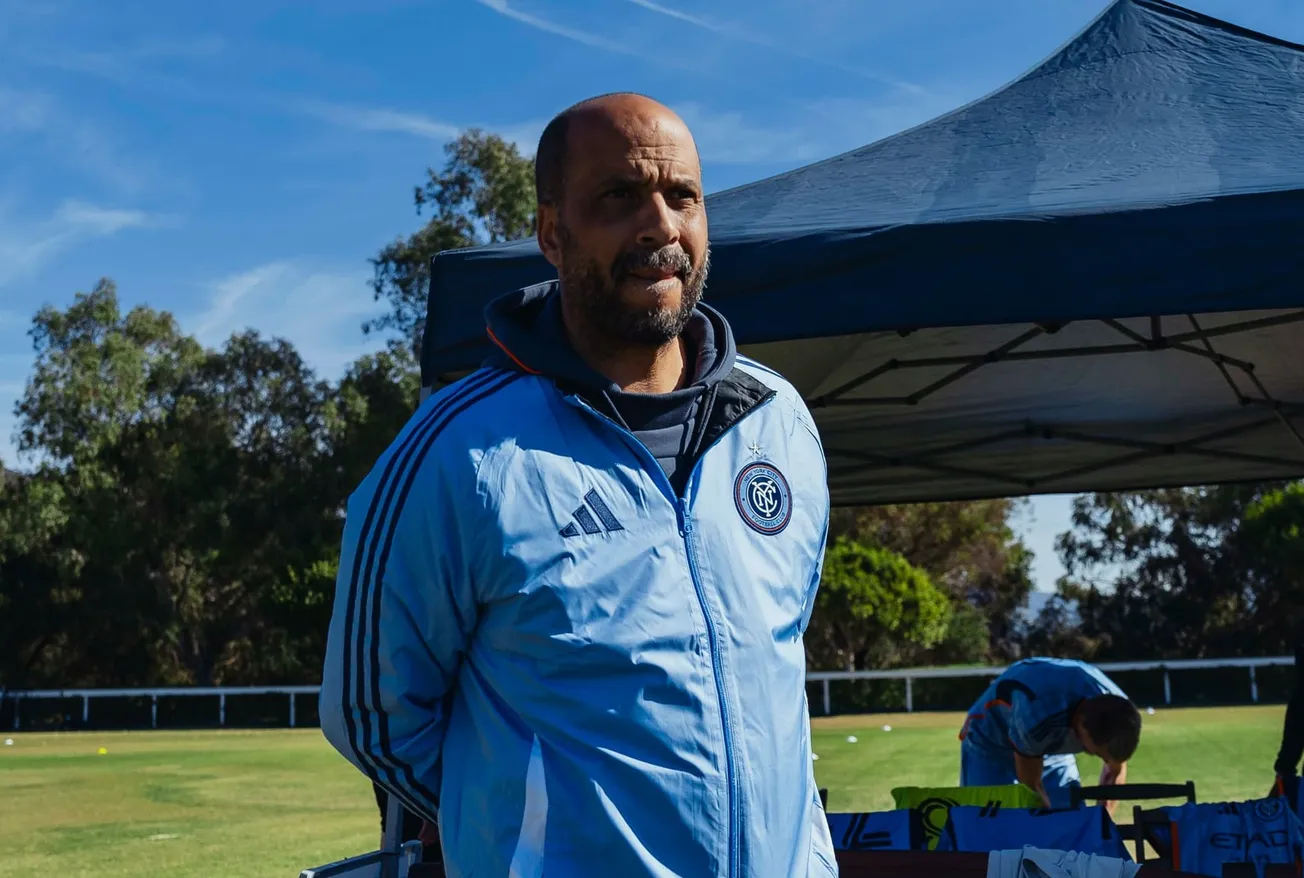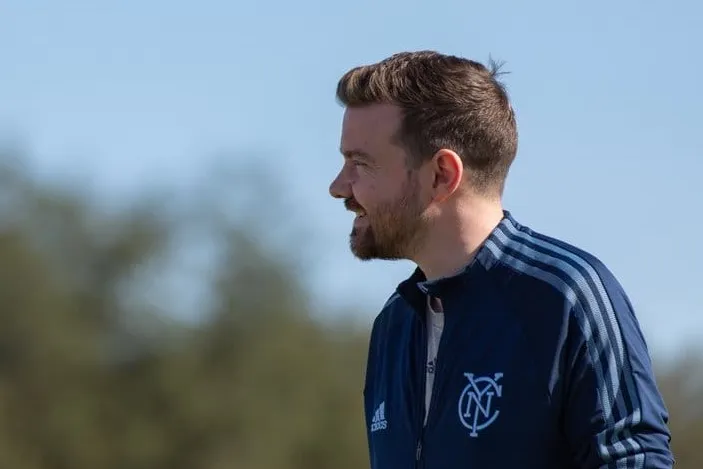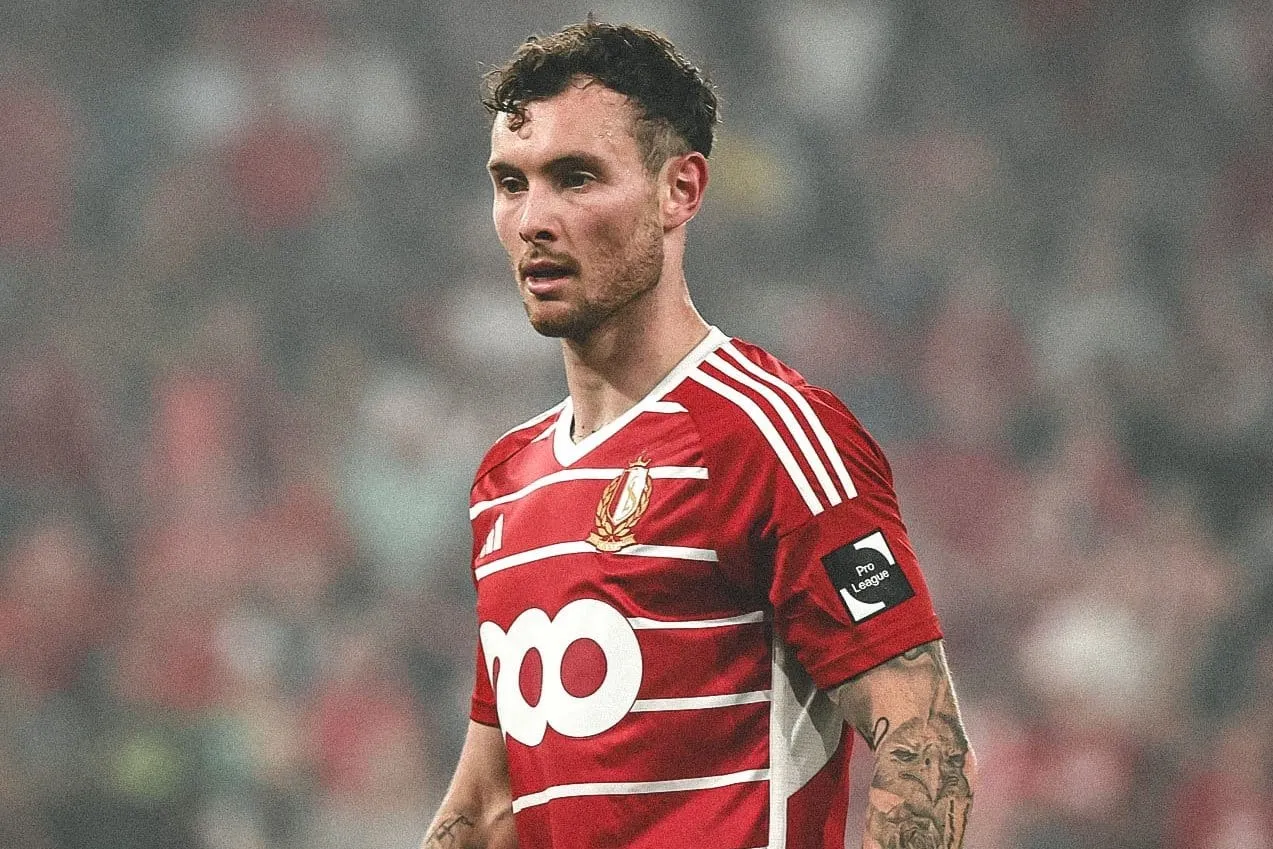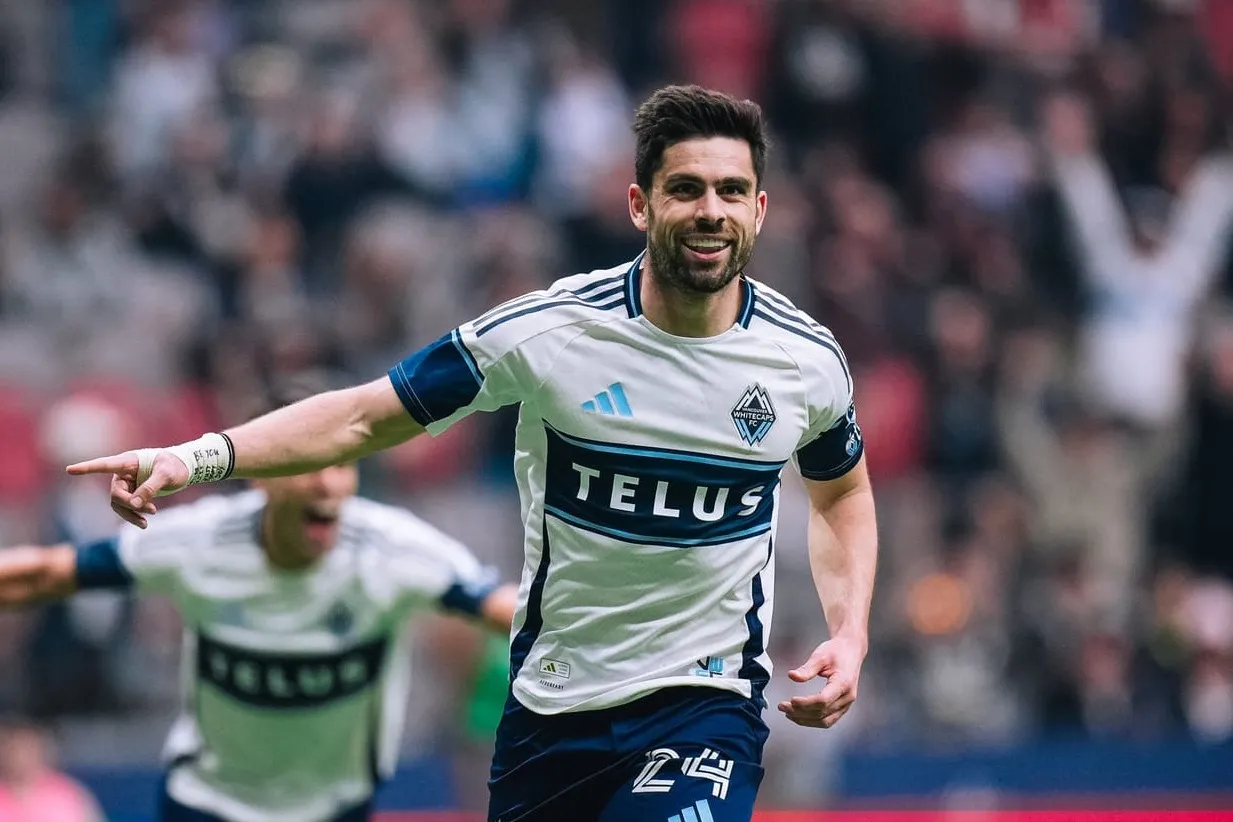Hudson River Blue sat down with New York City FC head coach Nick Cushing at the club’s training facility ahead of Friday's game with Columbus Crew at Citi Field.
NYCFC are 16 games into the 34-game season, and are proving to be one of the best teams in Major League Soccer this year. New York City are on a five-game wining streak, which equals a club record, and took 25 out of a possible 30 points over their last 10 games.
We asked Cushing about this current run of form, what it takes to coach young players, and why possession vs pressing isn't the right way to look at the game. We also talked about how he first became a coach at age 18, what it's like to work in the winning culture of City Football Group, and why he's now dressing nicely on game days.
Note: This interview was edited for length and clarity.
An emotional start to the season
Hudson River Blue: Let's start by talking about how things are going at New York City FC. At the start of May, you lost to Colorado 0-2 at Citi Field. At the postgame press conference, you looked completely dejected. Sometimes after a loss you can be combative, at other times you're analytical, but that day you looked like you at a funeral.
But after that you started in on this current winning streak. That includes the games against Toronto, Philadelphia, Red Bulls. Can you take us through this emotional journey from that Colorado match at Citi Field to where we are now?
Nick Cushing: I try not to be emotional, and I try and check myself all the time. I think emotion plays a huge part in the game, and without it, it wouldn't be the game that we all love. But as head coach you have to try and suppress emotion, and you have to to reflect and review from a higher perspective than emotion.
But I'm a human, right? And it's difficult when you know the team's playing well and you get a result like that.
You know, I'm also an honest guy. My frustration in that game was because I felt like we missed an opportunity there.
We had a five-day lead into the game, and it was a lot more technical than you would ever know. You guys [in the media] are privy to coming in and watching the training, but the way that we built that week's game was different. I think we played Saturday and then Sunday, and we went for a five-day lead, and it's very unlike us to do that. It's very unlike me to do it. I went for it thinking that it would be positive.
But I felt like the team was a little bit flat, and a little bit lacked energy, and lacked that real freeness that we need to win football games.
The nature of that game was Colorado are very defensive, very compact. They were going to be difficult anyway. It was going to be quite a mentally taxing game. And I sent the team in not as free as I believe they needed to be.
I could see the reason straight away, and I take full responsibility for it. It became really, really disappointing, incredibly frustrating. But at the same time, I knew we had games that followed that, and it was easily fixable.
HRB: But then there were the triumphs after that. It's hard to win in Philadelphia, it's always hard to win in New England, it's hard to win in Toronto, and beating the Red Bulls is always hard.
So you went from that experience of Colorado to a series of really important wins. Do you still try to go and tamp down your feelings?
NC: Um, no. There are many, many different things in those wins. Firstly, they taught us a lot about what the super-strength of our team is this year, or what is a huge attribute of ours, which is physical ability and the dynamic nature of how we play the game, which is the ability to go and be aggressive and on the front foot.
And the main part of that is freshness, mentally and physically. That answered a lot of questions for us in how we prepared the team.
As the coach, you want to go in and do everything. Everything. You want to work hard every day, but you just can't run and run and run and run and run and teach and teach and teach. You have to know what to prioritize.
There has been some really, really, really good work going on since November of last year of how we win away and who we are away from home.
We didn't win so many away games last year. We look at how we can improve that, and we're trying to put that work into play. We learned a lot away in Charlotte and away in St. Louis.
Post-home stand, we knew we had the opportunity to build confidence and build momentum. And I think we managed to do that in Toronto, which gave us the opportunity to do it in Philadelphia, and then to win in New England. It gives us confidence, but LA, Nashville are going to be difficult. You know, we haven't fixed it yet. We have to continue to work, and continue to put points on the board away from home.
Toronto allegations, MLS findings: It's finished
HRB: Let's go ahead and talk about that game up in Toronto. There was the actual match, which was hard fought and hard-contested, and then there was everything after. MLS issued a brief statement last week that didn't punish you or anybody else. It also didn't exonerate you. What is your response to that?
NC: I think I made a statement regarding it previously.
You know, you want my honest response? I think this whole situation came about from probably too much talking. So I think it's finished, right?
I was really pleased with the level that it was elevated to. I was pleased to have an individual call with the commissioner, and was really happy with that communication. The statement went out and, you know, I think the right thing to do now is to move on.
Meeting, exceeding expectations
HRB: Last year, this team, it didn't meet expectations when you didn't make the playoffs. This year, the team are exceeding all expectations — this is one of the strongest first halves to the season that the club has ever had their history. What are the key factors behind this drastic of a turnaround year over year?
NC: You know, I can't say enough about the group of players and staff that I have here, because when you taste the disappointment that we tasted last year, it is really easy to give in and it's really easy to split.
I think it's a great test of your culture, right? Because not everybody can see the layers underneath the outcome. The outcome was, we didn't make the postseason. But within that, there were a lot of layers. There was some really good stuff, there was some not-so-great stuff, and there was some stuff that was okay.
Once you understand what you need to retain and where you need to improve, all you need is a group of people that have the willingness and the desire and the hunger to get there. And then as the head coach, you build a strategy that is going to accelerate that.
With a young team and a new staff, we made some changes in staff. We recruited some new players post-Leagues Cup last year. Our group looks very different, but there were also elements of last year that I did want to keep and I did want to retain, whether it be the culture or whether it be parts of the performance.
You think how we've changed the game. To me, the amount of work we fit in over this period is incredible. The areas of development that we've shown shows the willingness and the hunger of the team. And, you know, when you recruit players, you want to recruit on talent and potential. I think we've done that. Potential is probably the biggest area because of the age band of the team.
My experience is when you recruit good people, motivating an underperforming team is not a difficult job. Keeping a performing team hungry is a challenge.
That's why there's not so many winning teams out there. That's why there are not so many teams that consistently win because that is a very unique attribute. I was really lucky to have that in my previous team. We put on nine trophies in nine years.
Now, for us here, it's about understanding. The data the team bring me this year is we're top of high press shots, we're the highest xG (expected goals) away from home in counter attack. So all these stats that look great, but ultimately, the only stat that you guys and the fans care about is league position, right? But my job is to understand how to get there.
So, we're on our way. Some will say we're over-performing. Some will say we're performing at the level they expect. For me, it's just about trying to consistently perform at the highest level to win.
HRB: Back to what you were talking about in terms of what to keep and what to get rid of, what to retain. Are you talking about players and personnel, or are you talking about characteristics of the team?
NC: I think player and personnel will always be something that you have to keep one eye on, if not both eyes on. Recruitment and retention, and releasing players, is something in our organization, in our league, that's an ongoing thing. I have a great scouting team. We have a succession plan for all of our players. It's always been there.
Because the culture is important. If one guy checks out of the culture because maybe his eyes are somewhere else, or maybe he's decided that he wants to go in this direction, or maybe he's not performing at the level that he should be performing, you know, you got to keep an eye on it. Culture is really important to me, and one thing I've learned is, human beings can change quickly.
My job is to keep the team moving in the same direction. And we've seen that across the evolution of the team, right? The team doesn't stay the team forever. You have to continue to bring in guys, and at some point guys outgrow the team and decide that they want to leave, or decide that it doesn't match their individual goals.
That will continue to happen happened in staff as well, right? We've changed some of our staff. That's natural.
I think the biggest thing for me was, How do we become a winning team quickly? We didn't concede a lot of goals, but we have to score more. We still have to score more. For us, it's about creating goal chances in every phase of the game. We didn't have that last year. We didn't have the physical ability to do that. We didn't have the understanding, and collective hunger and desire. And I take responsibility for that.
To me, that's a dictator of your training program. To me, that's a dictator of what you put in, you get out. I think the acid test is doing it over time, right? You can be a great pressing team in two games, but to do it over 34 games? Because there's a physical element to it. There's a mental element to it. There's an element that teams will watch you and understand you and work try and find solutions. But that's all part of being a winning team.
Possession? Press? Score goals in less than 3 passes
HRB: You talk about being a good pressing team. It seems that pundits around the world decided that there are now two styles of play: Either you're a possession team or a pressing team. So, either you're Manchester City or you're Liverpool, either you're NYCFC or you're Red Bulls. Is it that simple?
NC: No.
Without giving away all my secrets, I think if you want to score goals in every phase of the game, you have to have the ability to be able to play in every phase of the game. So, if we play Colorado and they're going to sit low, we have to unlock that team.

